”I have a broken tooth”. What do patients actually mean?
We would like to point out that in this article we will talk about what patients mean when they go to the dentist and say: ”I have a broken tooth”. From our experience, we can say that patients refer to anything that is used to chew food and smile. False teeth, such as a crown or an implant – represents the tooth. Even the mobile prosthesis in the expression of patients can represent the tooth.
Hereafter, we will identify the most common causes, leading to the breakage or fracture of any type of tooth, whether it refers to a natural or false tooth (made in a dental clinic). Also, you will find out how to repair a “broken tooth” and at what price.
Why do teeth break and how to fix them?
The causes of dental fractures are different in natural teeth (primary or permanent teeth) and artificial teeth, as well as the ways to fix them.
Broken tooth in children (fractures of a primary tooth)
Most often primary teeth can break due to the following causes:
- injuries / strokes;
Children often fall on the floor, they hit each other and could break their teeth. - toys or various objects;
Children are always tempted to “take to their mouths” various toys or hard objects, which could lead to the breakage because baby teeth are fragile. - dental caries.
Tooth decay progresses quite quickly, which weaken the tooth walls and can crack.
The solution for repairing primary tooth is the restoration with composite. If the root of the primary tooth is already resorbed and soon the permanent tooth should appear, the doctor may in this case propose the extraction of the tooth.
For young children, it is recommended to treat the broken tooth and restore it, under a mild sedation in order to not psychologically traumatize the child.
Broken tooth in adults (permanent teeth)
A permanent tooth can break due to several causes, including:
- caries not treated in time;
Caries can lead to tooth fracture, as the tooth walls become thinner and weaker. - old, massive fillings;
Large and old fillings can compromise tooth strength. With time, the filling material tightens and cracks (spaces) are formed between the filling and the tooth. Because of the pressure during the chewing process, the filling can easily come off taking even part of the tooth away. - biting hard foods;
It appears most often on frontal teeth. These teeth has the role of biting food. The incisors are very thin compared to other teeth and may break easily when biting harder food. - kicks / falls;
The tooth may also break due to bumps or falls on the face. Boys suffer most often because they use to play football, basketball or other games involving head injuries. - bruxism;
Tooth pressure caused by bruxism, thins the teeth and at some point, even biting less hard foods, they can fracture. - bad habits;
Some bad habits like: breaking the sunflower seeds between the teeth, biting the pens, nails, opening bottles with teeth can lead to the breakage of the tooth enamel. - wrong occlusion;
If the teeth touch each other incorrectly, both when you bite, chew, as well as at rest, there is a risk of dental fractures. - devitalized teeth;
Devitalized teeth have a lower resistance and are more prone to breakage and fractures. - dental abrasion disorders.
Teeth affected by one of the forms of dental abrasion are more fragile and can break faster.
The composite restoration technique is usually used to repair a broken tooth. Put back into operation, the tooth needs more strength, therefore it is recommended that after restoration, the tooth should be covered with a dental crown.
For chewing teeth, where the cusps are broken, it is possible to avoid both the composite restoration and the dental crown in favor of the ceramic restorations (inlay, onlay, overlay).
Broken artificial tooth (dental crown on implant or tooth)
Even if the material from which it is made is durable, an artificial tooth could break. Here are some of the causes that lead to artificial tooth fracture:
- bruxism;
If the patient suffers from bruxism and doesn’t wear the mouthguard at night, it is very likely that shortly after fixing the work on the implants or teeth, the ceramic will splinter. - chewing hard foods;
The materials from which the dental crowns are made are very resistant but they don’t have the elasticity present in the natural tissue of the tooth. With false teeth, you must be very careful with meat that contains bones, fruits containing seeds, very hard chocolate or from the fridge, otherwise you may end up with pieces of ceramic in the mouth. - bad habits;
The bad habits mentioned above in the case of permanent teeth, are absolutely forbidden when you have an dental crowns on your teeth or implants. They can lead to fracture of the dental crown. - falls / blows;
As with permanent and primary teeth, falls and blows can also be among the causes of fractures of dental crowns on implants or teeth. - overcontacts;
Uneven points between the teeth lead to fractures or breakage of dental crowns. This happens because, during chewing, crowns with higher contacts receive the highest pressure and at some point they don’t resist.
The solution for the restoration of permanent dental crowns that are broken, chipped or cracked is usually the restoration of the entire work. In case of minor flaw, it could also be restored with the help of composite restoration. Sometimes, when the defect is barely visible, the doctor may lightly polish the damaged area to restore it to a more natural shape.
Temporary broken tooth (denture or temporary crown)
The temporary tooth may simply fracture during chewing due to:
- material;
acrylic – the material from which the temporary crowns are made is fragile, because their role is more aesthetic than that of increasing the effectiveness of mastication. It is recommended to chew soft foods or hard foods but with great care and attention. Under no circumstances, it is forbidden to break the food with the teeth. First cut with a knife and then chew, otherwise you risk breaking them. - carelessness.
This point is more about mobile dentures, which are removed in the evening or after each meal for cleaning. It is very important to pay attention when you remove and place in the mouth the partial dentures with elastic hooks. If you force them, they could break.
Temporary dentures are usually repairable. The acrylic used for flexible prostheses is more difficult to fix than the classic acrylic, but depending on the severity of the prosthesis fracture, there is a good chance that they will be repaired.
Temporary crowns fixed on implants or teeth need to be completely restored. Instead, dental bridges could be fixed by adding a metal frame inside the bridge.
Consequences. What happens if we postpone the fixing of the broken tooth?
For patients who have a broken tooth, the biggest problem is the aesthetic part. Yes it is true, the look of the smile matters a lot, but besides that, there are other unpleasant consequences that will not be long in coming, such as:
- change of occlusion;
When a tooth breaks, the correct relationship between the two jaws is lost. The broken tooth is no longer put into operation and unbalances the occlusion. - tooth abrasion;
The broken tooth creates difficulties for the other neighboring teeth. Due to the fact that he no longer participates in chewing, the other teeth are overworked and this could increase the chances of developing some forms of dental abrasion. - sensitivity, pain;
When the tooth cracks, a piece of dental tissue is lost. The enamel is damaged, dentin is discovered, and depending on the amount of lost tissue, the dental pulp could also be opened. If the tooth is not fixed, the discomfort increases, as well as the sensitivity and pain. - the occurrence of periodontal disease;
Bacteria that enter the open cavity formed by tooth fracture, inflames the nerve and leads to a condition called pulpitis, which then develops into others periodontal problems. - loss of tooth or implant.
If the tooth broke, and it’s too late to fix it, you risk losing your tooth and then extracting the root. In the case of a dental crown on implant, unfortunately, things can get worse faster than with a natural tooth. Crown fracture either temporary or permanent on the implant, may lead to implant destabilization. This is due to the pressure that falls unevenly on the implant axis.
How much does it cost to rebuild / repair a broken tooth?
Fixing a broken tooth is not expensive at all. In European countries, the costs are higher. In non-EU countries, such as Moldova, where dental tourism is practiced, prices will be at least 3 times lower. The cost will increase slightly if the doctor decide to protect the broken tooth with a dental crown.
If it is an artificial construction on teeth or implants, such as crowns and dental bridges, then the costs are individual. Fixing these types of dental works will cost you less, especially if they fall within the warranty terms. If the work is no longer repairable, it will be necessary to completely remake it and in these cases the price may increase.
How much will cost to fix a broken tooth in our clinic
In our clinic we offer you very attractive prices for any dental services, such as:
- reconstruction of the broken tooth with photopolymer composite material at a price between 50 euro and 120 euro;
- restoration of broken tooth with ceramic (inlay, onlay, overlay) at a price of 225 euro per tooth;
- metal ceramic crown on the tooth at a price of 100 euro or no metal crowns (full ceramic or zirconium-ceramic) at a price of 225 euro per tooth;
- fixing a broken temporary prosthesis can cost from 25 euro;
- a new temporary fixed crown on the implant or tooth costs from 35 euro to 85 euro.









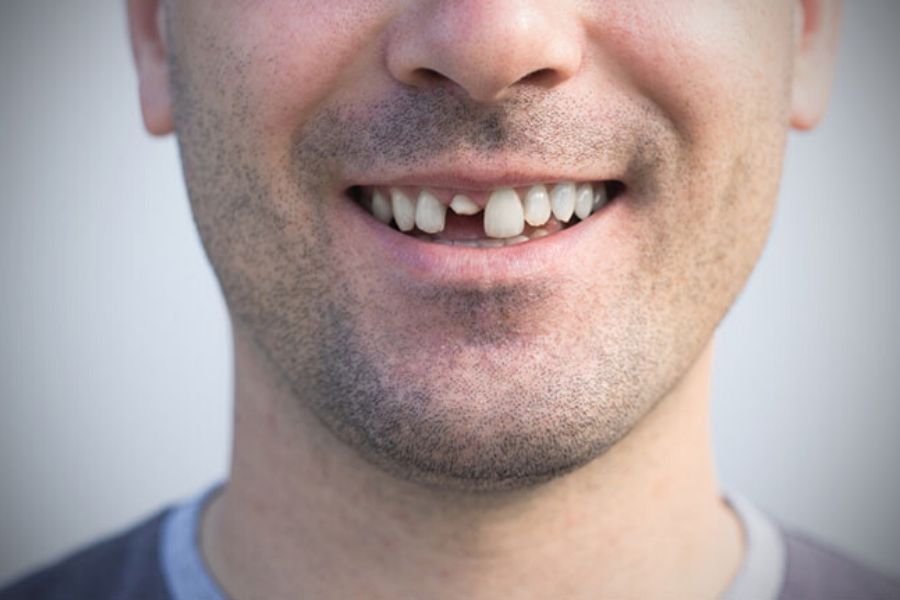

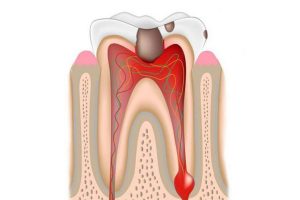
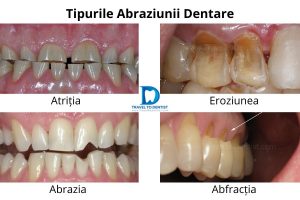
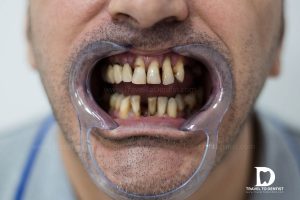
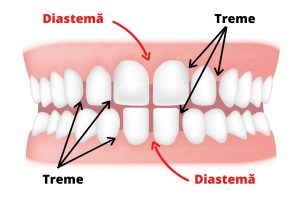





Spelling error report
The following text will be sent to our editors: